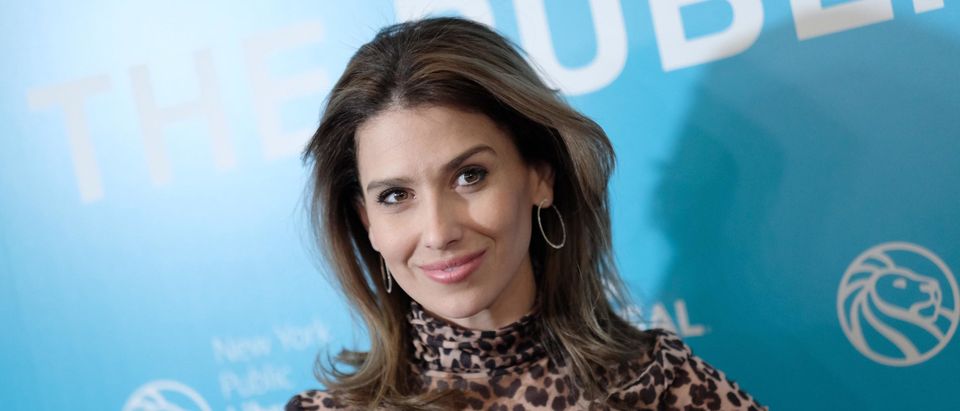Hilaria Baldwin’s allegedly faked Spanish accent may be another case of an individual deceiving others into believing they’re of a race or heritage that they’re not.
Baldwin and her husband have denied that her accent is faked, but an internet sleuth has pointed to videos and articles that hinted that Hilaria is actually Hillary, and has faked her Spanish heritage. Hilaria would join a growing club of white liberals and activists who’ve misrepresented their racial identities, and there could be multiple scientific explanations behind why these individuals have chosen to do so.
Alec Baldwin’s wife, Hilaria Baldwin, has been posing as a Spanish person for years https://t.co/6ex1wUpsrF
— The Daily Beast (@thedailybeast) December 28, 2020
Rachel Dolezal is perhaps the most commonly known example of a person born to two white parents who identified as black. Dolezal had taught Africana Studies at Eastern Washington University before being exposed as white, and was the head of Spokane’s NAACP and a fixture of the black community. (RELATED: Here’s A List Of White Liberals Caught Pretending To Be Black)
Satchuel Cole, an Indianapolis racial justice activist, apologized in September for pretending to be black when she is actually white. University of Wisconsin-Madison graduate CV Vitolo-Haddad apologized and resigned in September after admitting she was not black, and is of Italian heritage. Jessica Krug, a history professor at George Washington University, apologized for presenting herself as black for years.
Satchuel Cole, leader in the fight for racial equality in Indianapolis, lied about own race https://t.co/ATlMcIJYXm pic.twitter.com/HUyb71GwXC
— IndyStar (@indystar) September 18, 2020
ICYMI: Jessica Krug resigns from George Washington as a graduate student from her alma mater also admits to being dishonest about racial identity https://t.co/JSRp7ng4nq
— Inside Higher Ed (@insidehighered) September 12, 2020
Sue Cowan-Jenssen, a psychotherapist in the U.K., writes that while Dolezal’s choice to pass as black for years was “very unusual,” but it’s not unusual for people to claim “a victim status that is a fabrication.” Cowen-Jenssen refers to sociology professor Frank Furedi’s book “Therapy Culture,” which focuses on how a “therapeutic culture incites people to feel powerless and ill” and may lead to individuals seeking to assume identities “as victims in order to evoke compassion and interest,” Cowan-Jenssen writes.
Cowan-Jenssen points to her own experiences in her field. A client who was suffering depression and loneliness told her that if she had cancer, people would be more supportive of her and would be viewed as brave rather than an outsider.
“If there is a link between outright lies and misleading self-promotion it is in the need to be other than oneself. At bottom there is a feeling that being oneself isn’t good enough. You have to be somebody else to be admired, or loved or understood,” Cowan-Jenssen writes.
ThinkProgress refers to one of the avenues of speculation that people took to explain Dolezal’s motivations, what researchers call “self-deception.” Self-deception functions as a way for humans to keep uncomfortable truths out of their minds by lying, which could help build confidence, although experts warn that consistent lies could lead to individuals becoming trapped in their lies to a degree that they’ve created a new reality.
Some individuals may come to decide to identify as a certain race after possibly growing up around influences of those respective ethnicities or races, which could lead to identity confusion. Dolezal’s parents, for example, said their daughter had some familiarity with African-American culture and lived with four adopted black siblings. Baldwin claims she spent a lot of her childhood in Spain, where her unclear family lives.
Speaking with PS Mag on the subject of Dolezal’s decision to identify as black, Nikki Khanna, an associate professor in the Department of Sociology at the University of Vermont says that there’s a difference between one’s “allegiance” to a particular ethnic group and false representation.
“I think we can certainly appreciate others’ cultures, and we can certainly participate in others’ cultures as well, but I think we’re a long way from accepting people that just decide or wake up one day and claim a particular culture as their own without having some sort of connection to it,” Khanna said.
“If [Dolezal] had just been honest and said, “Yes, I’m white, but I care about the issues in the African-American community and I’m going to fight for those,” that would’ve been fine for most people. I think it was that misrepresentation of her background that’s problematic.”


